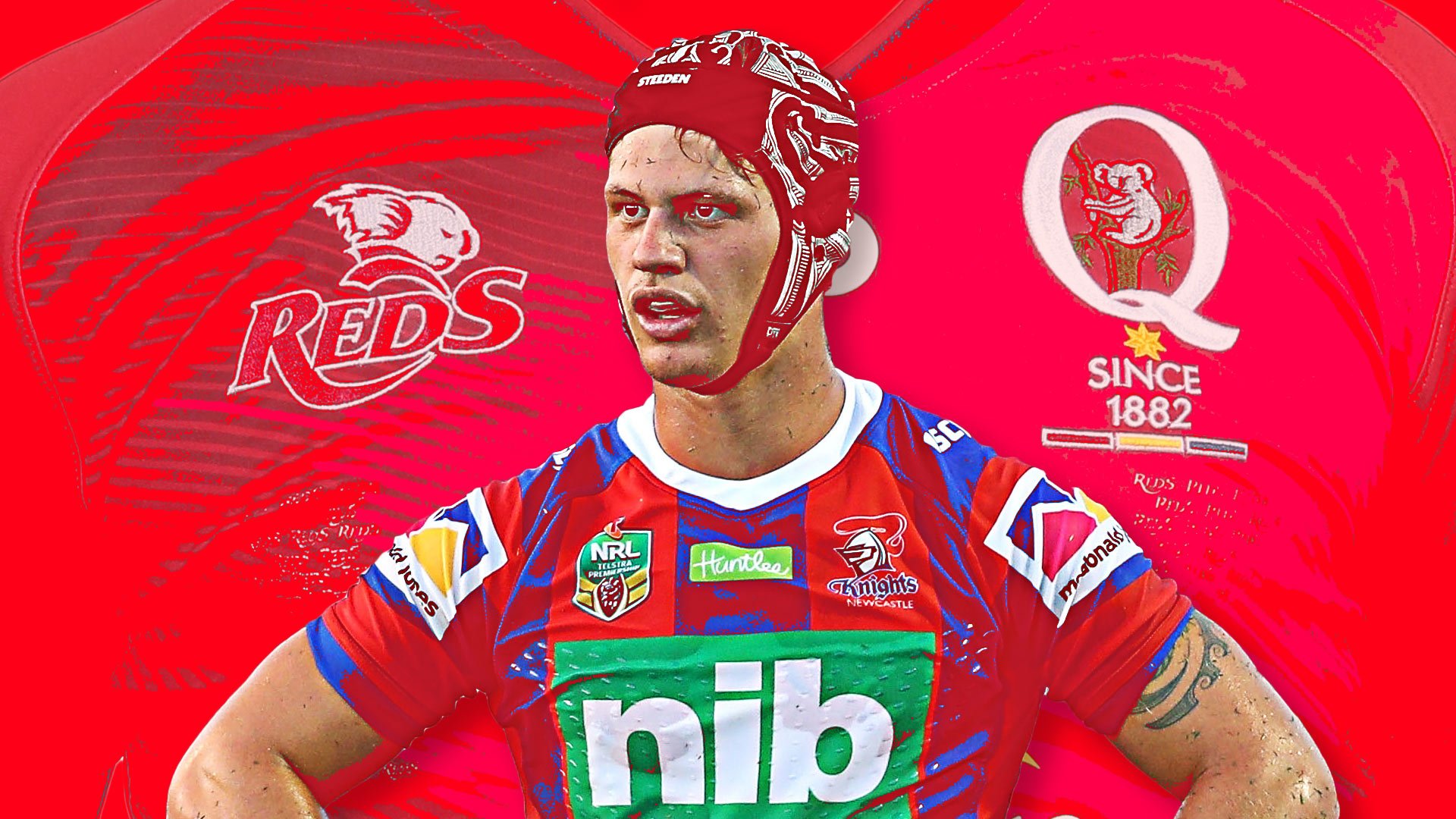The hottest property in the NRL this year is wunderkind Kalyn Ponga. In his first year with the Knights, the 20-year-old is proving his talent is worth every dollar they paid. However, it wasn’t too long ago he was playing the other rugby code in Brisbane as a schoolboy.
In a hypothetical ‘what if’, where would the Reds be if they secured this once-in-a-generational talent?
It must be prefaced that although he was playing rugby union at high school he came from a League background. His passion was always League and one of his first ambitions as an athlete was to play in the NRL. He was highly sought after by many NRL teams from a very young age and was in the Broncos development system at the time. As a 15-year-old he had multiple professional deals on the table, some as long as four years.
To be in the mix, the Reds would need to make a substantial investment. In January 2014 the Cowboys of the NRL announced the signature of Ponga on a three-year commitment, with the Reds reportedly making an unknown offer.
Six months later in July 2014, the Reds signed another fullback – Karmichael Hunt to a whopping three-year deal on a reported $600,000-$700,000 per year starting in 2015 which was exclusively funded by the Reds, with no support from the ARU.
The Hunt deal, as we now know, didn’t pay off in the slightest. Would they have been better off using that money to secure Ponga? In hindsight, it is easy to say yes, but even at the time that risk looked worth taking – this kid was unnaturally gifted, superhuman-like.
Let’s say the Reds were prepared to use that war chest to compete for Ponga six months earlier and crucially, secure support from the ARU to package a deal. They put together a plan to have Ponga playing Super Rugby full-time by 2017 as an 18-year-old.
In 2015, while still in his last year of school he completes developmental training while being paid a significant amount under contract and potentially plays Sevens late in the year. In 2016 he joins the Australian Sevens team full time to play on the World Rugby Sevens circuit, with ARU support. By 2017 he returns to the Reds and plays Super Rugby full-time.
How much would this gamble cost? $1.2 million over three years, back-ended. They pay $200k in the first year, $400k the next and $600k in the final year. The ARU fronts for half in the final two years and Reds have a total outlay of $700k. The deal significantly trumps the Cowboys one and Ponga commits to rugby.
The Reds also save $1.1 million in cash burnt on Hunt’s deal and use that to keep Will Genia, Liam Gill and Quade Cooper around. Now, in 2015-16 the Reds are still awful but Ponga is shielded from most of this. They sack Richard Graham a year earlier to save the locker room. They find a serviceable head coach with an open mind and preference for attacking rugby. Ponga finishes school and spends a year away shredding the Sevens circuit, becoming an excitement machine. In 2017 he debuts and gives the Reds hope for the future, making an immediate impact with raw freakish ability.
Genia and Cooper use Ponga as their primary attack weapon, and the Reds have a dynamic and explosive attack that takes them to the top of the Australian conference. With the space available off set-piece scrums and counter-attack, Ponga’s ability shines and the Reds become a joy to watch. They might even stop the streak from reaching 40 games. It’s a dream that many Reds fans will have hoped for that never came into fruition.
There is something to take away from this wishful thinking.
This hypothetical pathway for Ponga is from the same playbook the NZRU have used countless times to keep New Zealand’s best talent – the latest being Etene Nanai-Seturo and Caleb Clarke. Others in the past have been Rieko Ioane, Akira Ioane, Julian Savea and Ardie Savea.
Sometimes they are just ready to play professionally straight out of school and the NZR finds a way to make that happen. Often the NRL is also knocking on the door to sign them up at the same time – but the NZR does whatever it takes even if the payoff is a little further down the road. When you hear players like Angus Crichton tell their story of why he turned away from rugby, it often causes head-scratching and confused looks among rugby fans.
Rugby Australia should take a leaf out of NZRU’s playbook when the next generational talent shows up.
In other news:

















